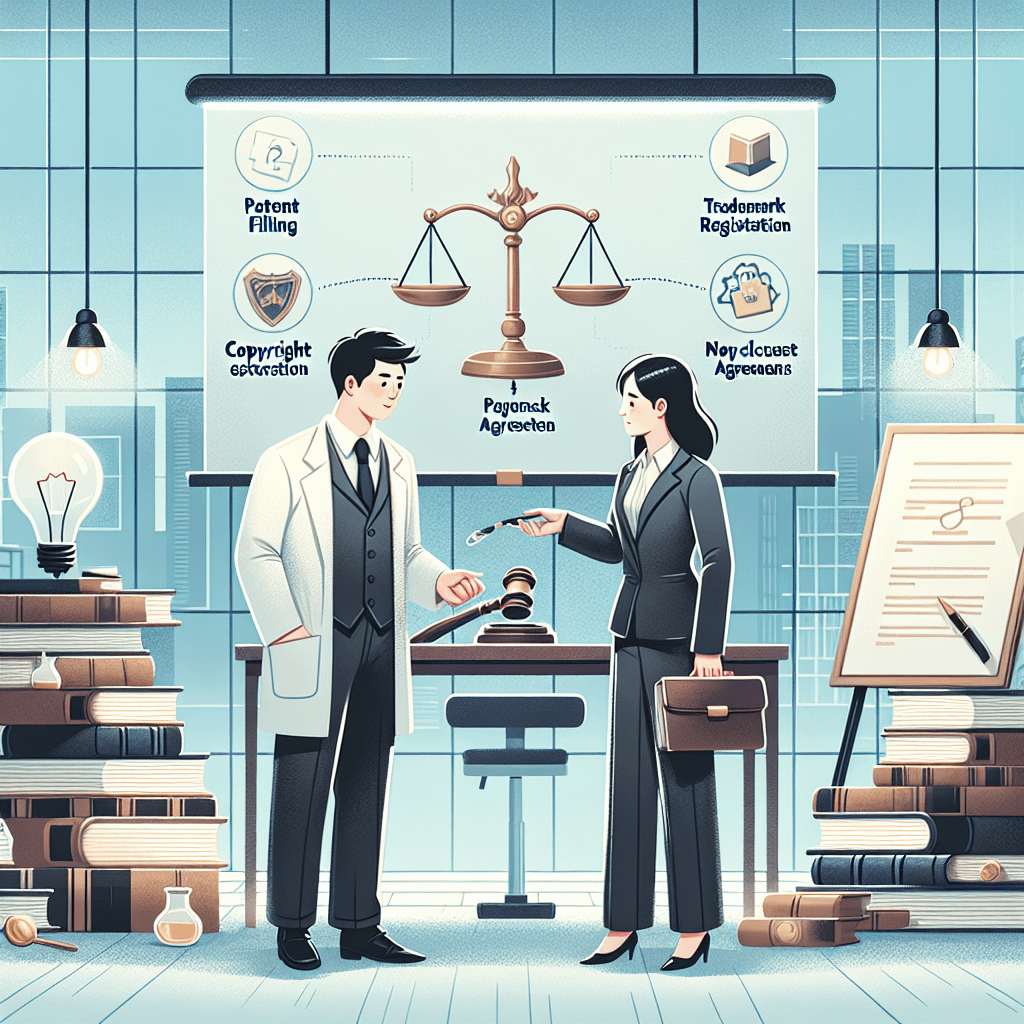In today’s creative and competitive world, protecting your intellectual property (IP) has become more important than ever. Whether you’ve invented the next big gadget, penned a novel, or developed a unique brand logo, ensuring your intellectual creation is protected should be a top priority. Here’s a straightforward guide to help you navigate the steps needed to safeguard your intellectual property.
1. Understand What Intellectual Property Means
Intellectual property refers to creations of the mind, like inventions, literary works, designs, symbols, names, and images used in commerce. The main types are:
- Patents for inventions
- Trademarks for brand names and logos
- Copyrights for creative works like books, music, and art
- Trade secrets for business secrets like recipes or formulas
2. Determine What Needs Protection
First, identify what type of IP you have. Are you protecting a brand logo? That would fall under trademarks. Is it a new machine or process? You’ll need a patent. A written work would require a copyright. Identifying what kind of property you have is crucial to taking the correct legal steps.
3. Trademark Your Brand
If you have a name, logo, or slogan representing your company or product, you’ll want to trademark it. Trademarks prevent others from using a confusingly similar name or image. Start by searching the U.S. Patent and Trademark Office (USPTO) database to make sure your trademark is unique.
Once you’ve done your homework, you can file a trademark application through the USPTO. This process can be intricate, so you might consider hiring an IP lawyer to avoid costly mistakes.
4. Patent Your Inventions
Patents are crucial for protecting inventions and new processes. They grant you exclusive rights to use or sell your invention for a set period, typically 20 years. To obtain a patent, your invention must be novel (new and unique), non-obvious, and useful.
Begin by searching the USPTO’s patent database to ensure no one else has patented a similar invention. Next, prepare a detailed patent application, which includes specifications, claims, and drawings. Given the complexity, consulting a patent attorney can be very beneficial.
5. Register Your Copyrights
For authors, musicians, and artists, copyrights can protect your creative works from being used without your permission. While copyright protection is automatic as soon as a work is created and fixed in a tangible form, registering with the U.S. Copyright Office gives you the ability to sue for monetary damages in court if your work is unlawfully copied.
You can apply for copyright registration online, and it often involves a fee. Keep in mind this applies to literature, music, films, and other creative works.
6. Secure Your Trade Secrets
Trade secrets are aspects of your business that give you a competitive edge, like a unique product formula (think Coca-Cola’s recipe) or manufacturing process. To protect trade secrets, keep them confidential through practices like:
- Requiring employees to sign non-disclosure agreements (NDAs)
- Limiting access to sensitive information
- Implementing security measures to prevent leaks
If someone improperly acquires your trade secret, legal action might be necessary. Be sure to consult with a lawyer to put necessary protections in place.
7. Common Pitfalls to Avoid
- Procrastination: Delaying protection efforts can be costly. Others may claim your ideas if you’re complacent.
- Overlooking International Protection: If your work could potentially be sold or copied abroad, consider international IP protection.
- Doing It Alone: Navigating IP law can be very complex. Consulting an attorney versed in IP law is often worth the investment.
8. Stay Informed and Vigilant
Lastly, even after your IP is protected, it’s vital to stay vigilant. Regularly monitor the marketplace and online platforms for potential infringements. Quick action can prevent competitors from capitalizing on your hard work.
Protecting your intellectual property is more than just a legal formality; it’s about securing your ideas, your brand, and ultimately, your livelihood. Taking these steps gives you the peace of mind to focus on the creative process, confident that your innovations are legally safeguarded.








